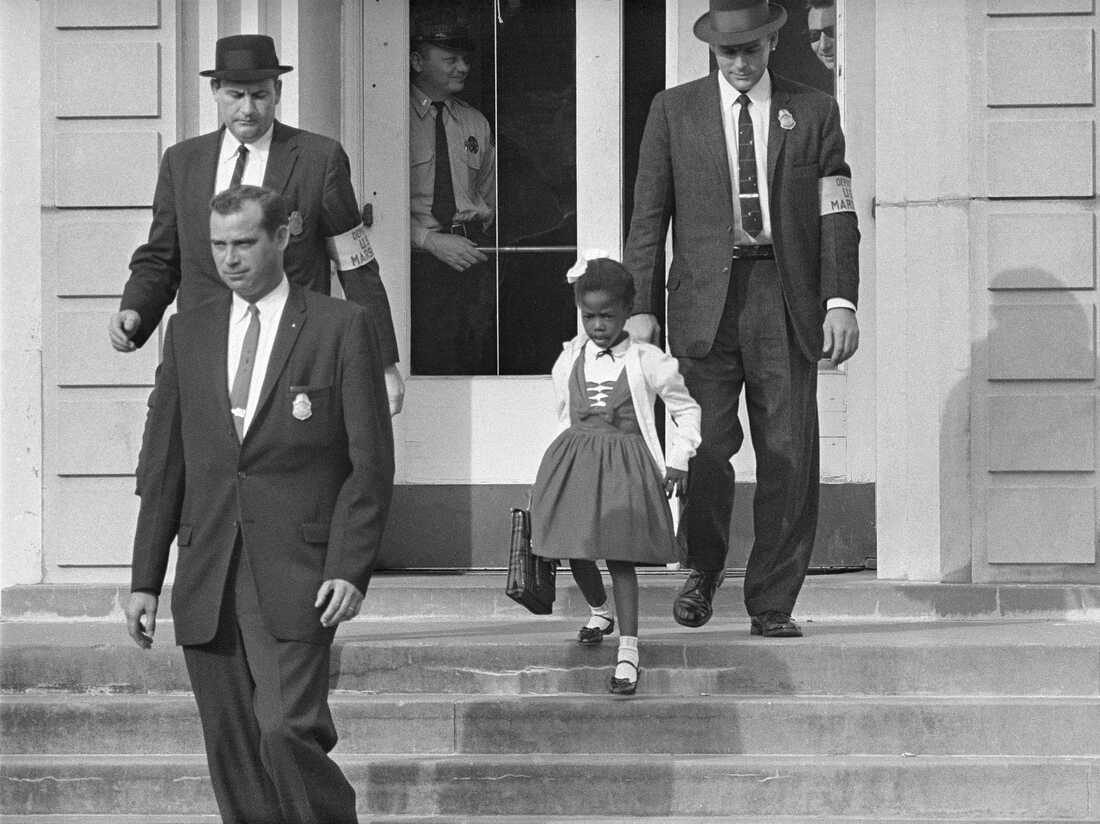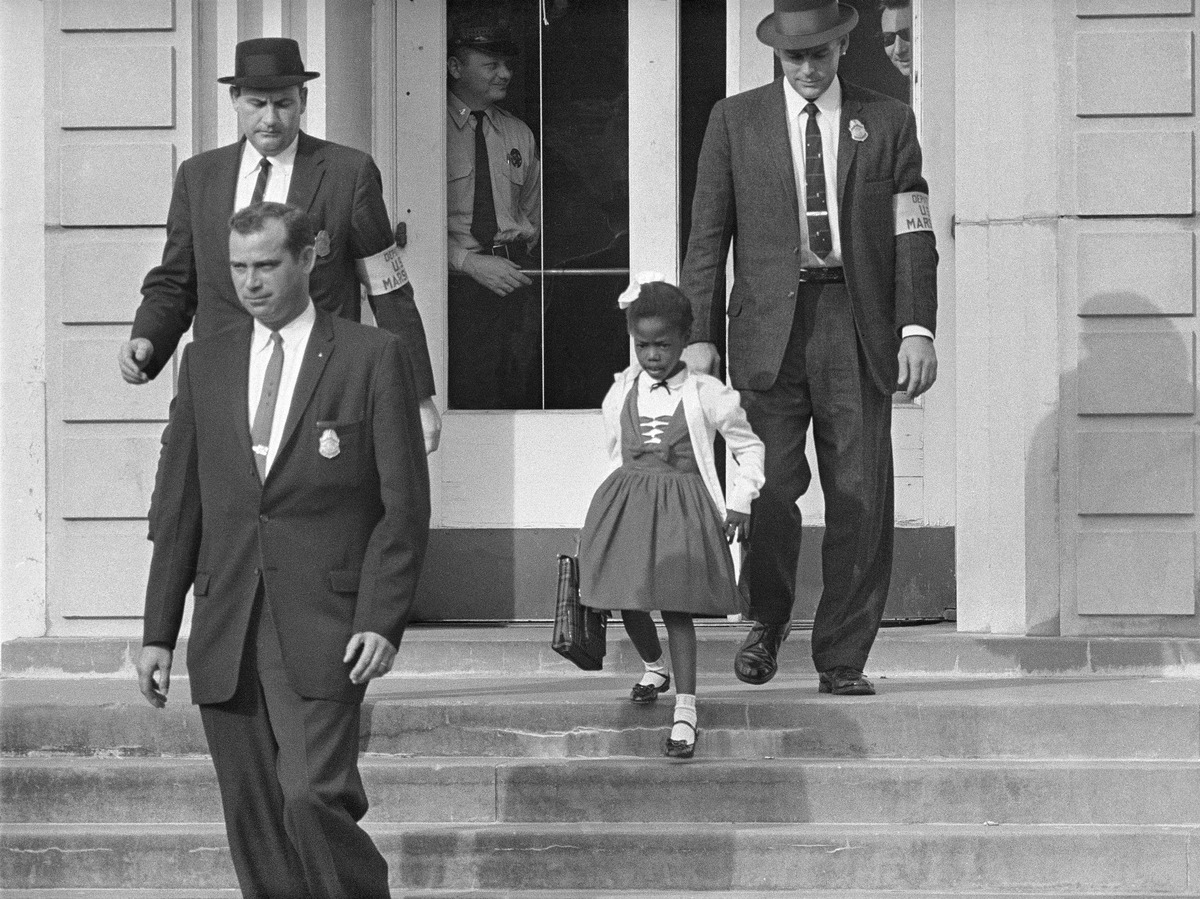
In November 1960, Ruby Bridges became the first Black child to desegregate the all-white William Frantz Elementary School in New Orleans. The six-year-old was escorted by four U.S. marshals. Uncredited/AP hide caption

In November 1960, Ruby Bridges became the first Black child to desegregate the all-white William Frantz Elementary School in New Orleans. The six-year-old was escorted by four U.S. marshals.
Uncredited/APRuby Bridges was just six years old in 1960 when she became the first Black child to desegregate the all-white William Frantz Elementary School in New Orleans.
She was escorted by four federal marshals and greeted by a mob of angry white protesters.
Today, Bridges is a civil rights activist and author, and she is sharing her experience with a new generation of kids in her latest children's book, I Am Ruby Bridges.
Bridges tells her story through the eyes of her six-year-old self and talks about what today's children can learn from her experience.
Email us at
This episode was produced by Elena Burnett. It was edited by Bridget Kelley and Mallory Yu. Our executive producer is Sami Yenigun.

 Live Radio
Live Radio